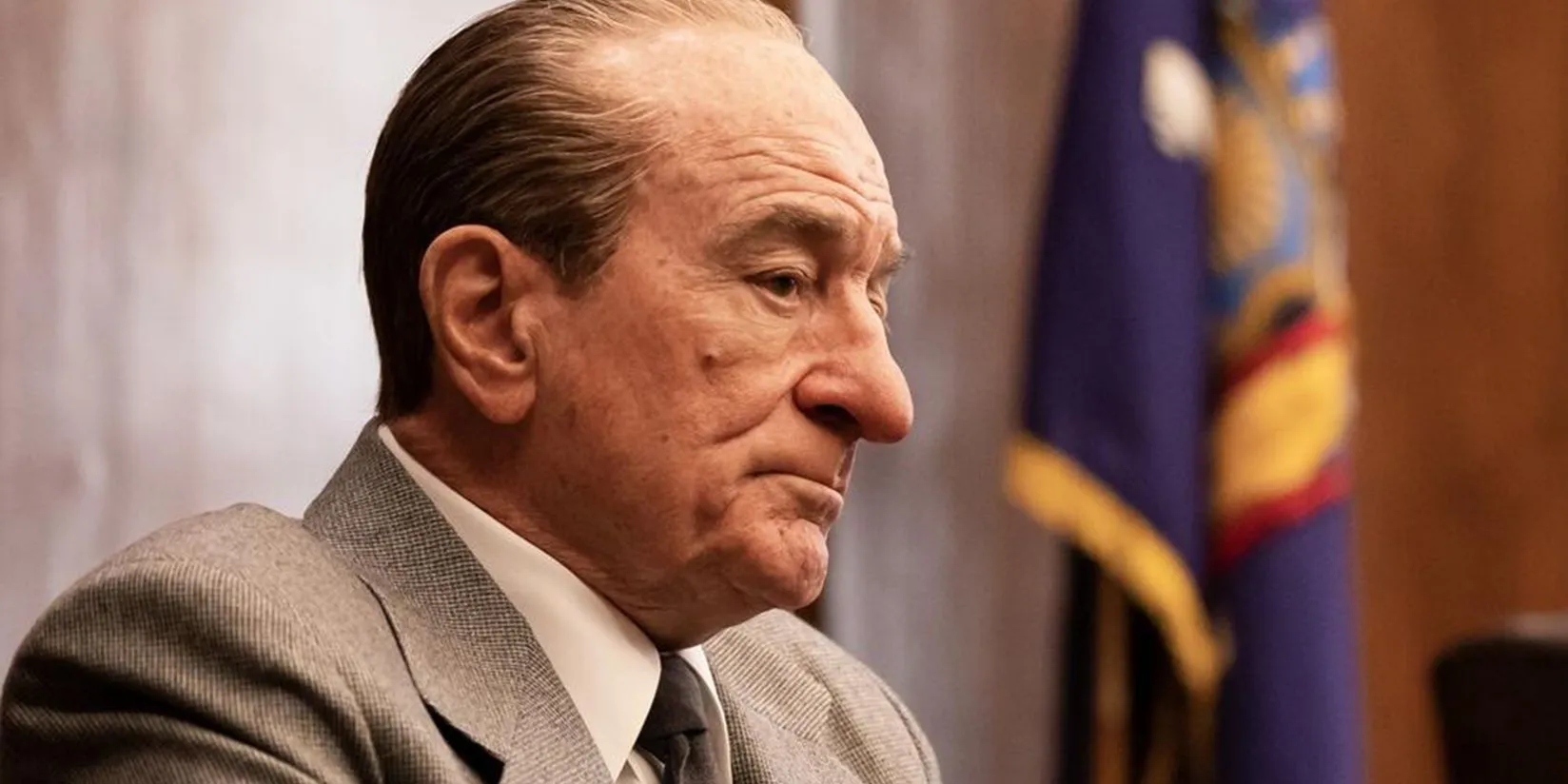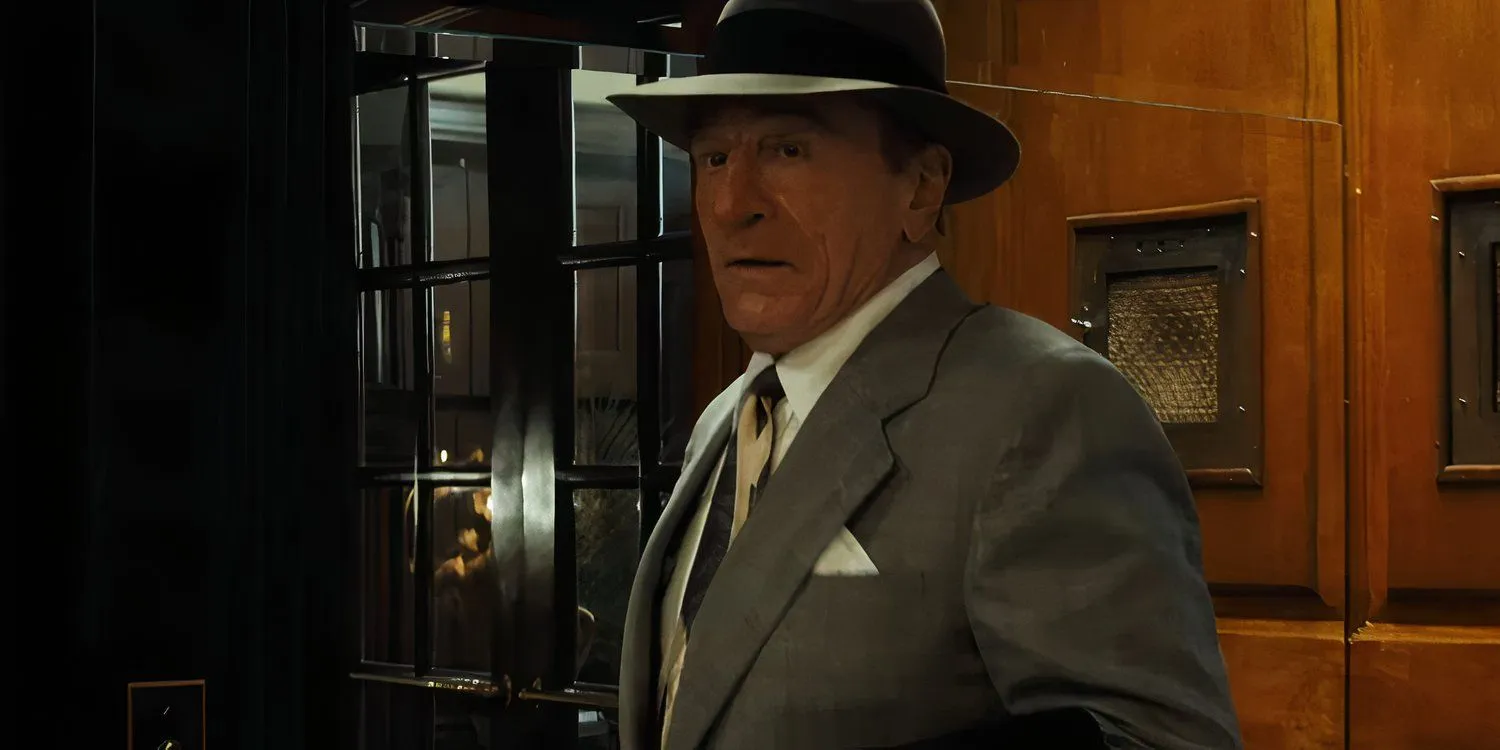As The Alto Knights struggles to gain traction at the box office, a dedicated producer is stepping up to defend Warner Bros. Discovery’s CEO, David Zaslav. This film, which had a reported budget of $50 million, transports audiences to 1950s New York City, featuring Robert De Niro as iconic mobsters Frank Costello and Vito Genovese. Released on March 21, the movie has garnered a mere $5 million in worldwide box office revenue.
Despite skepticism from some executives during the merger between Warner Bros. and Discovery, Zaslav remained resolute in supporting the film’s production. In a recent interview with The New York Times, producer Irwin Winkler publicly commended Zaslav’s decision. Winkler, known for his work on classics like Goodfellas (1990) and the Rocky franchise, believes that streaming services will eventually help The Alto Knights achieve profitability. Below are his remarks:
Irwin Winkler: I think David Zaslav is a really, really great executive. I think the film is terrific. I wish it did more box office. Over the years, I’m sure that Warners will make some money on it. We never did big theatrical business with [Goodfellas], but we certainly did in home entertainment — DVDs in those days. I think that in the long run ‘The Alto Knights’ will have the same kind of long-range audience acceptance.
Implications for The Alto Knights and Zaslav
Zaslav’s Track Record

The cinematic landscape in 2024 has proven challenging, with box office charts predominantly featuring sequels, prequels, and adaptations of established franchises. In an attempt to carve its niche, The Alto Knights relied on original storytelling and the star power of Robert De Niro. However, critics have expressed reservations, with ScreenRant’s Mary Kassel stating that the film “has nothing to say about the mafia.” The substantial $50 million budget created a challenging baseline for success.
| Title | Budget | Worldwide Total |
|---|---|---|
| Mickey 17 (2025) | $118 million | $112 million |
| Companion (2025) | $10 million | $37 million |
| The Lord of the Rings: The War of the Rohirrim (2024) | $30 million | $21 million |
| Red One (2024) | $200-250 million | $186 million |
| Joker: Folie à Deux (2024) | $200 million | $208 million |
| Beetlejuice Beetlejuice (2024) | $100 million | $452 million |
| Barbie (2023) | ~$130 million | $1.446 billion |
The lackluster performance of The Alto Knights raises alarms for Warner Bros., which has faced ongoing struggles since AT&T’s acquisition in 2018. After being sold to Discovery in 2022, Zaslav has been on a quest to stabilize the studio’s finances. Unfortunately, Warner Bros. has encountered continuous difficulties at the box office, mainly attributed to ever-increasing production budgets. The DC Extended Universe alone faced eight consecutive box office setbacks, reflecting broader trends in the industry where familiarity and lower budgets have often yielded better results.
Assessing The Alto Knights’ Box Office Setback
A Call for Change at Warner Bros.

The ongoing challenges faced by Warner Bros. signify troubling trends within the entertainment sector. Founded in 1923, the studio’s decline would not only affect its own legacy but also Hollywood at large, especially as rival companies dominate popular franchises. Warner Bros. boasts valuable intellectual properties, including Harry Potter, the DC Universe, The Lord of the Rings, the MonsterVerse, and the blockbuster hit Barbie, underscoring that consistent failures are perplexing.
In light of The Alto Knights’ disappointing box office performance, Zaslav must pivot his strategy. Although there have been some recent successes, including the blockbuster Barbie, the studio’s decision-making process has raised questions, particularly after canceling projects such as Coyote vs. Acme, The Day the Earth Blew Up, and Batgirl. With the industry shifting towards streaming and digital platforms, Warner Bros. needs a clear, robust strategy that extends beyond a single gangster film to regain its position in the marketplace.
Source: The New York Times


